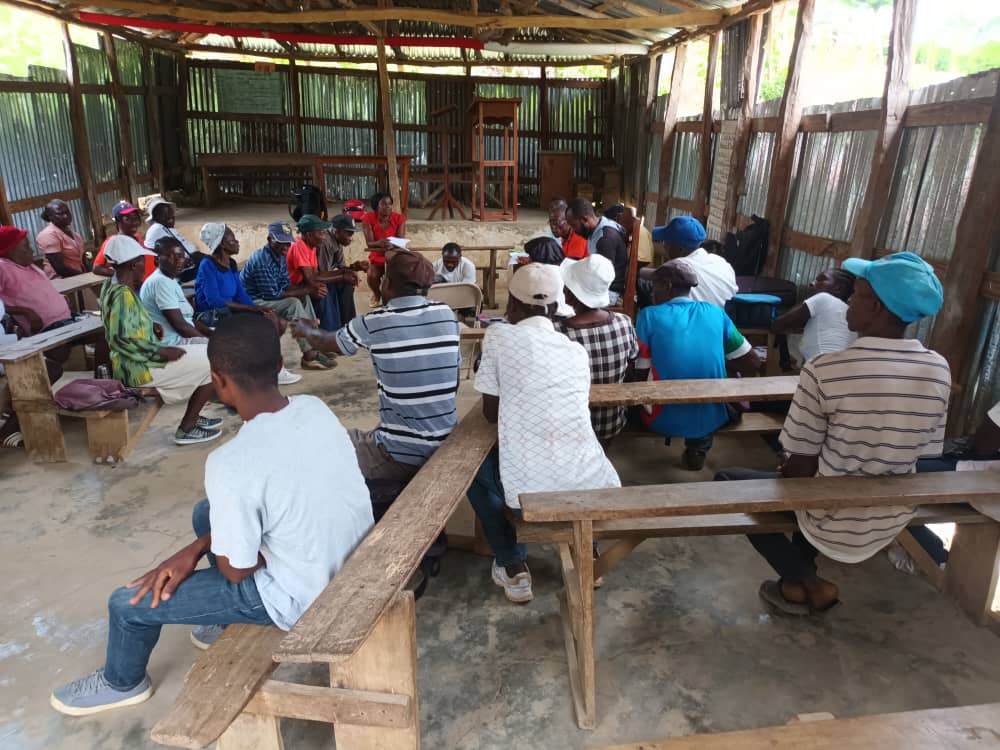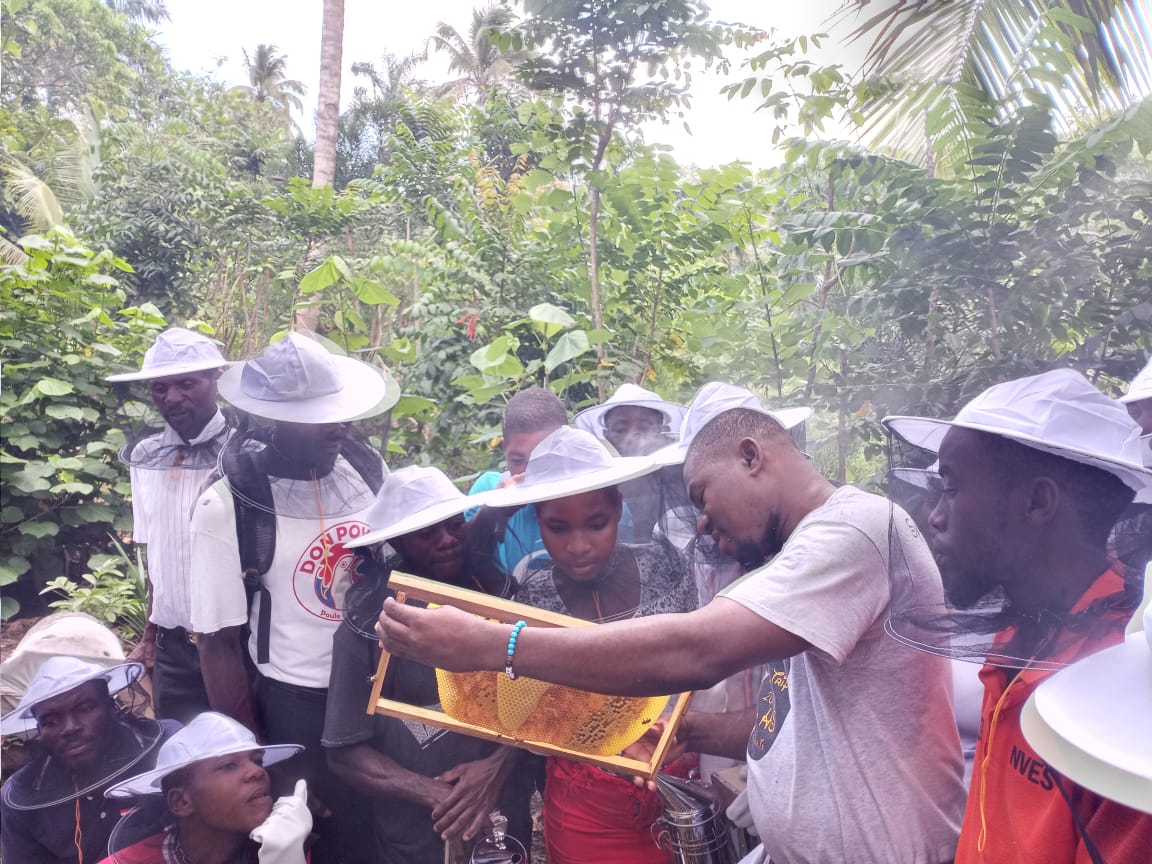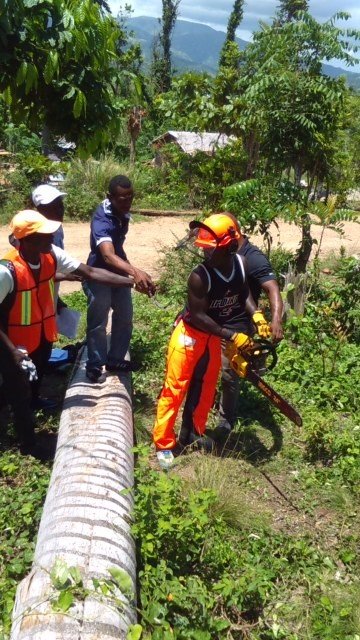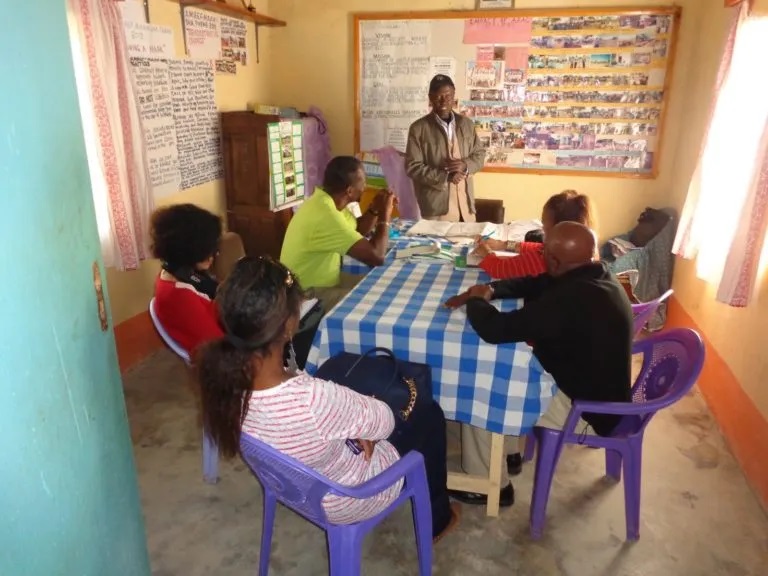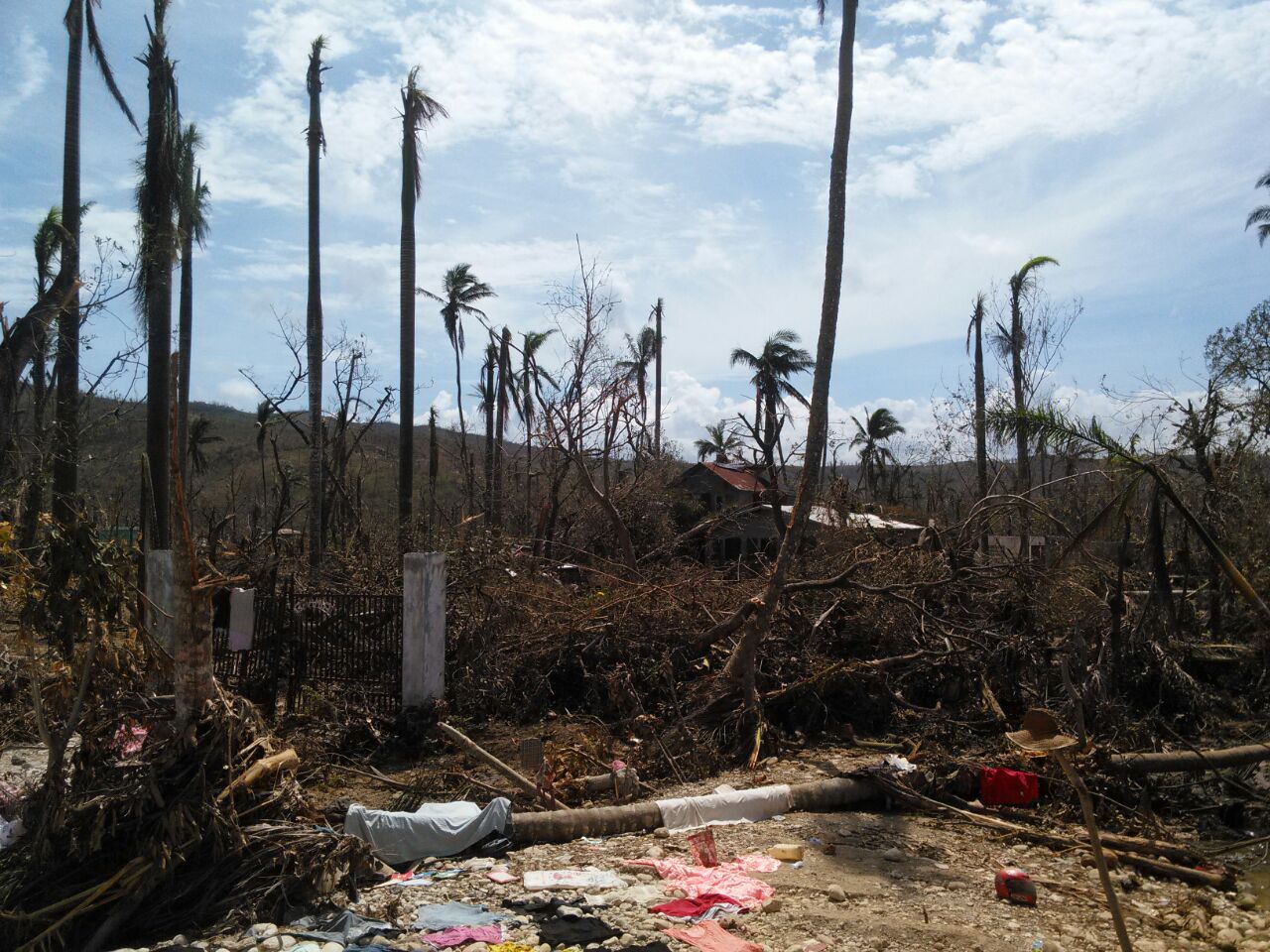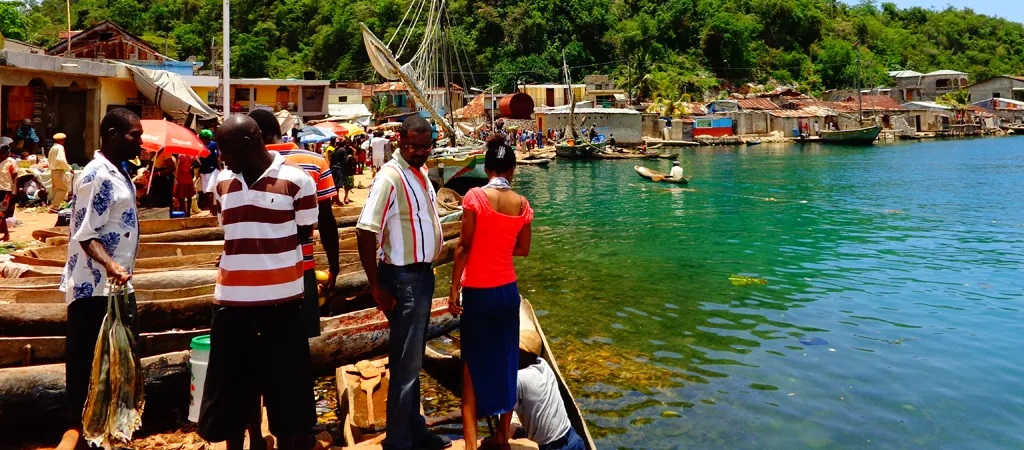EXPLORING THE IDEA OF A COMMUNITY FOUNDATION FOR HAITI
“How can we get long term reconstruction and development that is Haitian-led and owned?”
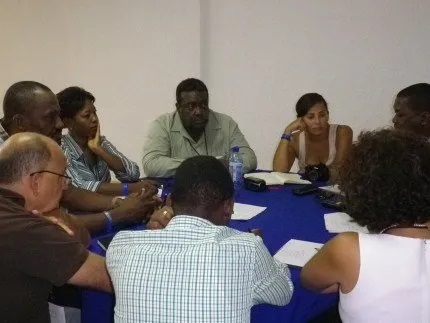
“How can we get long term reconstruction and development that is
Haitian-led and owned?” This was the topic of a two-day meeting held on Haiti’s
Arcahaie Coast in late July 2011 which brought together a diverse cross-section
of Haitians from civil society organizations, business institutions, members of
the Haitian Diaspora and representatives of international foundations. The
meeting, which was convened by the GFCF, Espwa, the Puerto Rico Community
Foundation and the W.K. Kellogg Foundation, was a first step in a conversation
around the idea of establishing a community foundation-type institution in
Haiti.
The earthquake which hit Haiti on January 12, 2010, killing over
200,000 people and leaving more than 1.3 million more homeless, crippled the
country’s already very weak systems and infrastructure. It also prompted a huge
outpouring of donations and development aid as well as a massive influx of
international NGOs into the country. Increasingly, concerns have been voiced
about the ways in which some international development efforts have
marginalized local communities and de-emphasized indigenous leadership.
In addition to reflecting on some of the structural flaws in the
ways that development funding was being delivered, the group discussed the
potential role that a Haitian-owned, Haitian-led philanthropic institution
might play in supporting the country’s long-term reconstruction and
development, particularly in the areas of strengthening the capacities and
voices of home-grown groups and community associations and of developing
philanthropic assets which can be both transparently and effectively applied.
This process is still at an early stage and there is much to be
done in terms of determining its feasibility, consulting widely with a broad
range of Haitians from all walks of life and ensuring that what emerges is
deeply rooted in Haiti’s context and culture. An informal working group has
been organized which will take responsibility for the next steps in the process

